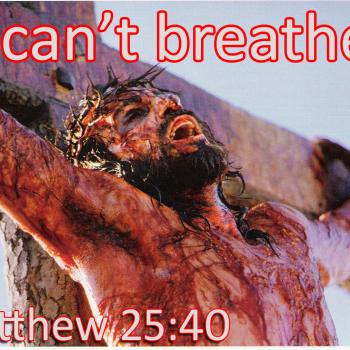I’ve just started reading James KA Smith’s new book Imagining the Kingdom. Smith’s basic argument is that our actions are not really based on conscious rational choices but rather on how ritual behaviors have caused us to imagine the world around us. Most Christian thinkers from the beginning have unconsciously bought into a Platonic “rationalist” conception of human nature in which our behavior is supposed to be regulated by our conscious rationality, and the fact that it isn’t reflects our fallenness rather than a condition innate to our humanity.
A lot of disastrous silliness has resulted from our Platonist “rationalism,” particularly the scandal of sexuality which was scandalous to Augustine and other church fathers not because of social issues related to wedlock pregnancy but because men cannot decide rationally when and when not to be aroused. In any case, it’s exciting to see a reformed theologian like James KA Smith going down this path, though I have to confess that I’m not sure what remains of reformed theology post-rationalism. If Smith is right, then liturgy is far more important than doctrine, which would mean that 45 minutes of “Biblical truth” can’t undo the damage of going to church in a shopping mall.
In any case, Smith offers the following summary of what I consider to be the basic conflict of the 21st century and what is at stake when we recognize that we have been liturgized into zombie consumers instead of grateful worshipers of God:
We have a “feel” for the world that is informed by stories that dispose us to inhabit the world as either a bounteous but broken gift of the gracious Creator or a closed system of scarcity and competition; and as a result, either I will just “naturally” be disposed to see others as neighbors, as image-bearers of God, whose very faces call to me in a way that is transcendent, or I will have a “take” on others as competitors, threats, impositions on my autonomy.
The basic problem of much of American evangelical Christianity is that liturgically our religion is capitalism so that while we might “believe” the right ideas about Jesus, our real values and instincts are shaped by assumptions of scarcity, self-reliance, and competition. Furthermore, the doctrinal emphases we discover “naturally” when we look at the Bible are shaped by the true objects of our worship in capitalism, such as the total depravity of the other, which is the raison d’être of suburbia and an atonement theory defined by God’s obedience to the fundamental principle of the market: that no debt can go unpaid.
So the question we face is whether Dow Jones or the communion table will be the orienting truth of our reality (a question which has already been answered when we avoid germs by doing the Lord’s Supper with crackers and shot-glasses). We can argue all day about gender hierarchy, sexuality, Biblical inerrancy, and so forth. What really matters is whether we believe that everything we have is a gift from God for us to share, no different than the body and blood of Christ which give us life, or else private property to be accumulated and defended, in which case we stake our identity in things that are death without the sacramental presence of their Creator.











